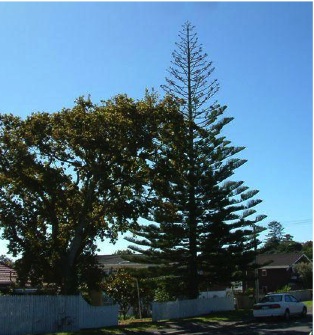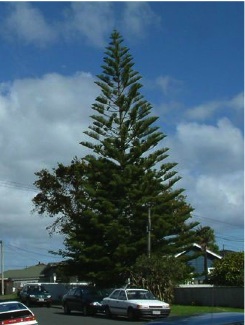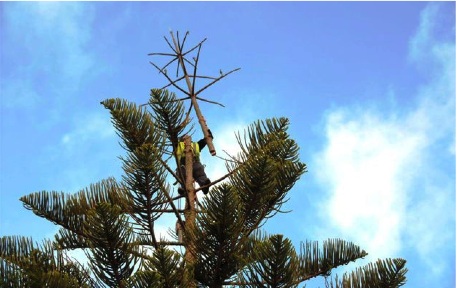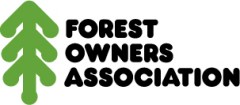PESTS AND DISEASES OF FORESTRY IN NEW ZEALAND
Dieback of Araucaria heterophylla
Scion is the leading provider of forest-related knowledge in New Zealand
Formerly known as the Forest Research Institute, Scion has been a leader in research relating to forest health for over 50 years. The Rotorua-based Crown Research Institute continues to provide science that will protect all forests from damage caused by insect pests, pathogens and weeds. The information presented below arises from these research activities.
From Forest Health News No. 173, May 2007.


Photo: Gerald Collett
Norfolk Island pine (Araucaria heterophylla) is a familiar part of the New Zealand landscape. This distinctive columnar tree is proudly grown in gardens, parks, and along walkways, dominating many urban landscapes because of its tolerance of exposed sites and coastal conditions.
Auckland residents may have noticed the rapid top dieback of the many Norfolk Island pines over the last few years. This has not gone unnoticed by Forest Health experts; Biosecurity New Zealand is working with Ensis Forest Biosecurity and Protection to try to discover the cause of the problem. The trees are prone to lightning strike and some of those with top dieback have classic lightning wounds visible down the stem. Other have no visible wounds, but deteriorate from the top of the tree down.

Photo: Simon Anderson
In recent months, samples have been taken from the dying tops of three trees in the Auckland area. Soil samples from around the roots of a further eight dying trees have also been taken. So far, no known pathogens have been consistently found in any of the samples, but work is continuing.
Margaret Dick and Elizabeth Orton recently visited some of the sites in Auckland to take a first hand look at the problem, including being onsite for the removal of a dead top.
The problem of top dieback among Norfolk Island pine is not new. In the past problems have occurred at several localities, particularly Napier, Palmerston North, Otaki, and Wellington. In some trees the dieback has been associated with drought and the presence of Nipaecoccus aurilanatus (Pseudococcidae) — an introduced Australian mealybug that feeds on various members of the Araucariaceae. There are no signs that this mealybug is implicated in the dieback of the Norfolk Island pines in Auckland at this time.
Elizabeth Orton
From Forest Health News 72. March 1998:
NORFOLK PINE DIEBACK
Once again unthrifty Norfolk pines ( Araucaria heterophylla ) have been brought to the attention of Forest Health. Samples of top dieback collected by Simon Cook (Auckland City) from affected trees on Waiheke Island came across the pathology bench in early February. A species of Botryosphaeria was isolated from the sampled plant tissue. Chris Scott (MAF) visited Waiheke Island, 17 February, and commented that the dieback was consistent with drought stress rather than a primary pathogenic attack. Those trees with dieback were invariably growing in sites where there was only a thin layer of soil over the underlying rock. Botryosphaeria cankers occurring in Northern Hemisphere hardwoods are thought to be induced by predispositioning environmental stresses such as drought. In the absence of a vigorous pathogen this predisposition/weak pathogen combination seems the most likely explanation.
Severe top dieback of Norfolk pines has been reported from Southland to Northland over the years (see FHNews 50:2). No vigorous pathogens have ever been associated with the unthrifty trees and as with the Waiheke Island trees this
indicates that other contributing factors are playing a major role.
(Kiryn Dobbie, Forest Research)
This information is intended for general interest only. It is not intended to be a substitute for specific specialist advice on any matter and should not be relied on for that purpose. Scion will not be liable for any direct, indirect, incidental, special, consequential or exemplary damages, loss of profits, or any other intangible losses that result from using the information provided on this site.
(Scion is the trading name of the New Zealand Forest Research Institute Limited.)



